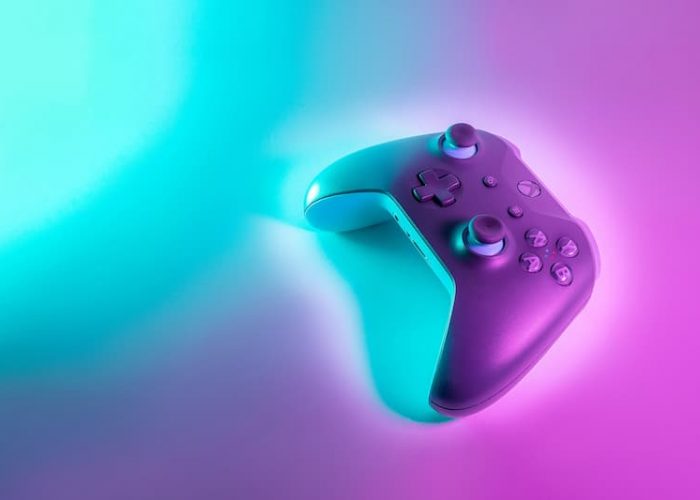Career Opportunities in the Video Game Industry
The global video game industry has seen a major rise in recent years. At the end of 2020, it was estimated that there were over 2 billion gamers around the globe, and that number is expected to keep growing. That may be partially due to the pandemic and more people staying at home. But, it’s also because video games are advancing all of the time and attracting new audiences.
But, it’s not just the number of gamers that’s on the rise – it’s the career opportunities in the video game industry. As demand continues to increase, new opportunities are forming all the time. By 2025, it’s forecasted that the industry will be worth $268 billion.
Whether you’re a gamer yourself, you’re interested in tech, or you want to be involved in the next “big thing” that happens in the gaming industry, there are plenty of career opportunities to choose from. Some might even surprise you.
With that in mind, let’s look at a few of those opportunities, and how you can get involved in the video game industry. If you’re still not convinced it’s the career move for you, we’ll first dive into why a job in the gaming industry could change your life.
Tap Into the Future
Video games are often on the cutting edge of technology. Because there’s so much competition, manufacturers are always looking for the right talent to push their tech over the edge. Because of that, the future of video games is an exciting one. It will include advancements in things like:
- Cloud-based gaming
- Mobile gaming
- Upgraded consoles
- Diversity
- Digital distribution
Are your wheels turning already? You might be able to tell from this short list that jobs within this industry don’t all involve directly working with graphic design or game construction (though that’s a subject we’ll be touching on in a moment!).
The video game industry needs individuals with a variety of skills and experience to keep growing successfully. That includes those with business and marketing backgrounds, tech wizards, and everything in between.
No matter what industry you’re currently in, chances are you could transfer some of your skills to the gaming world. If you’re unhappy with your current career, now is a perfect time to make a change and start a career you enjoy. Life is too short to feel overwhelmed, stressed, and anxious every day because of a job, and if you haven’t found a job you enjoy by your 30s, it’s definitely time to start looking. If you’re not sure where to get started, we’ve got a few career opportunities that might spark your inspiration and motivation.
Game Designer
Have you always had a vivid imagination? Are you able to come up with stories that have intricate details and exciting characters better than anyone else you know? If so, you might excel at being a game designer.
Despite the job title, game designers don’t typically do any “designing” in terms of graphics or physical game creation.
Rather, they’re the ones who come up with game concepts. You’ll develop everything from the plot points of the game to the characters that will be involved. Once you have the basics, you’ll work with a team of developers to flesh out the details and bring the game to life.
Game designing is becoming more important than ever, and companies need great storytellers to help them stand out from competitors. It’s especially important for companies that specialize in RPGs. They’re becoming more popular, and users can be very specific when it comes to what they want from those games.
Many players become incredibly invested and they pay close attention to detail. Creating a game idea from scratch that will keep players interested and engaged is considered a success. If you think you have the imagination and skills to do it, this could be the best career path for you.
Artist
Maybe your creativity doesn’t show itself with words and verbal concepts, but with art.
Video game art has changed dramatically over the years. Most people associate the artwork in games with the quality of the graphics and technology, but the two are separate things. Yes, the right technology is important when it comes to bringing game artwork to life and showcasing it properly. But, a game artist is responsible for all 2D and 3D artistic elements, including:
- Characters
- Backgrounds/scenery
- Props
- Color choices
Most game artists have skills in different software technologies and know a variety of programming languages. But, your job isn’t to program the game itself. You’ll collaborate with programmers and developers to make sure your art looks as good on a television or computer screen as it does while you’re creating it. That’s why being able to work as part of a team and being a strong communicator are two additional skills that are necessary for this job.
Programmer
So, what does a programmer do?
You’ll work closely with the game designer and artist to not only bring concepts to life but to make games playable. Programmers and software developers essentially “build” the games from the ground up using different coding languages. Programmers will take ideas and turn them into coded instructions that different systems will be able to read.
Understanding a variety of coding languages is important, especially in today’s competitive market where game manufacturers are trying to offer something different to their consumers.
If you think about some of the most famous video games of all time, most of them have been widely hailed as successful because of the programmers’ work behind the scenes. Of course, gamers are also often quick to call out things like “glitches” and mistakes in coding and programming. So, if you think this is the career field for you, make sure you have an eye for detail. You may even want to consider yourself a bit of a perfectionist – and one with thick skin!
Audio Engineer
The first thing most people tend to notice about a great game is the visual content. But, think about what your favorite games would be without the right sounds complementing everything.
Gaming sounds include:
- Background music
- Dialogue
- Special effects
- Ambient noises
Sound is a huge part of the gaming experience, especially since so many gamers are plugged into headsets. Imagine your favorite RPG without a killer musical score. Or, think about how weak your favorite shooter game would be without realistic weapon sounds and voice-overs. That’s the main goal of an audio engineer – to add a greater sense of realism to each game through sounds and music, so players can immerse themselves into different worlds.
It’s an extremely technical job that requires great attention to detail. But, it also allows you to be very creative. If you think you have the technical chops and you’re passionate about music and sound, being an audio engineer for video games could be a great career path.
Gameplay Tester
Because there are so many avid gamers in the world, it’s easy for almost anyone to step up and think they could be a professional gameplay tester. But, that isn’t usually the case. While being a game tester is a fun job, it requires more than just sitting back in a beanbag chair and playing casually with friends.
Gameplay testers have a lot of responsibility. They are one of the last forms of “quality control” before a game hits the market. To gain a job as a tester, you’ll need to highlight a lot of your skills to a potential employer, including:
- Strong problem-solving abilities
- The ability to work under pressure
- Strong attention to detail
- Knowledge of the gaming industry
- Understanding of specific quality assurance processes
Your role as a gameplay tester will include extensively testing every aspect of the game itself. You’ll have to play the game in every way possible and explore every area to seek out things like glitches or bugs that could negatively impact user experience.
Your goal should be to “break” the game throughout your playing experience. If you aren’t able to do that and everything runs smoothly, it will go to the next stage of development and release. If you can find a glitch or bug within the gameplay, the game will go back and be reworked before getting released.
Being a gameplay tester also doesn’t mean you’ll be working alone all of the time. It’s always best for testers to form positive relationships with programmers and designers, so any changes that need to be made won’t be taken personally, and will only boost the quality of the game.
Is a Career in the Video Game Industry Right for You?
As you can see, there are more roles in the gaming industry than most people realize. Each one is just as important as the others, and we didn’t even scratch the surface on the careers that market and sell the games.
But, if you’re passionate about this industry and you’re looking for something that will allow you to express your creativity, you can find a successful career within the video game industry. Keep these career paths in mind and consider which skills you might already be able to apply to specific positions. You might be more equipped than you think, making it easier to find a job that you enjoy right away.
About the Author
Amanda Winstead is a writer from the Portland area with a background in communications and a passion for telling stories. Along with writing she enjoys traveling, reading, working out, and going to concerts. If you want to follow her writing journey, or even just say hi you can find her on Twitter.






